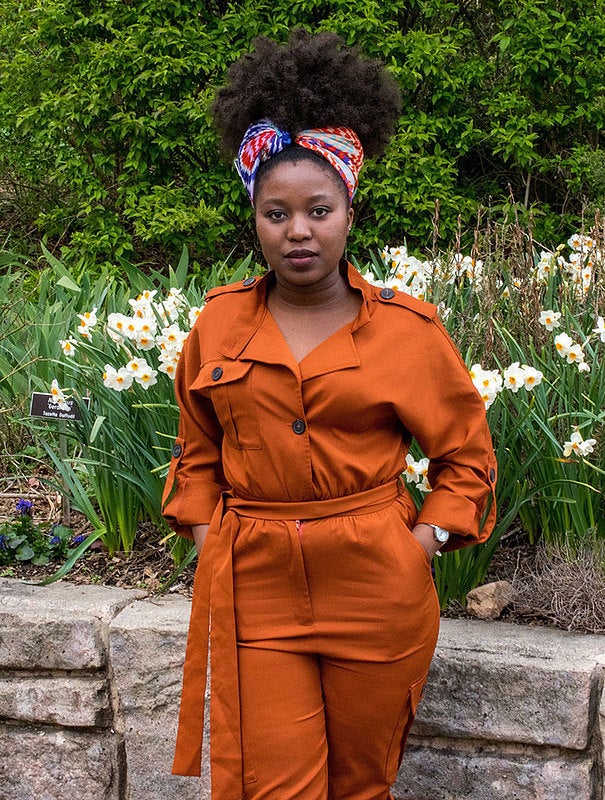Researching HIV
by Lori Ferguson
The statistics are grim. According to the World Population Review, the southern African country of Lesotho has an HIV rate of 25 percent—the second highest in the world. It’s a reality that Mannuku Pheko ’21 knows all too well. Growing up in Lesotho, she witnessed the destructive impact of HIV firsthand.

Mannuku Pheko ’21 landed her dream job as a research assistant studying HIV at the Henry M. Jackson Foundation for the Advancement of Military Medicine at the Walter Reed Army Institute of Research.
The experience not only informed Pheko’s worldview but also sparked a fascination that has become a profession. “I’ve always been interested in infectious diseases, especially HIV, and I’d love to have a vaccine that protects people from the virus,” she says. Today, the young biologist is putting her shoulder to the effort in her dream job as research assistant with the Henry M. Jackson Foundation for the Advancement of Military Medicine at the Walter Reed Army Institute of Research.
Pheko says her collaborations with professors at Luther have paved the way for her success. “While at Luther, I collaborated with professor Brian Hiester on a genetics project to investigate the development of glyphosate-resistant strains in garlic mustard,” she explains. “I learned transferable skills and genetics concepts that I continue to build on. Luther is the reason why I am at the foundation today.”
When she arrived at Luther, Pheko admits, she wasn’t entirely clear on her path. “I knew I was interested in infectious diseases—particularly HIV—but beyond that I wasn’t sure. So I took a variety of classes during my four years, from evolutionary biology and microbiology to global health.”
It was a microbiology class with professor Jodi Enos-Berlage, however, that sealed the deal. “The subject matter was fascinating,” she recalls. “We learned the basics of vaccine development and studied microorganisms—for example, we learned that antibiotics are actually found in the soil.” The class piqued Pheko’s interests and bolstered her determination to pursue research.
Professor Eric Baack’s course on evolutionary biology deepened her interests. “I loved that class,” she enthuses. “We talked more about vaccine development, which really relates to what I want to do, and I did a semester-long project on the development of the functional HIV vaccine.”
Last May, Pheko completed her degree in biology. She now spends her days helping in the production and analysis of molecular sequence data that can be translated into strategies for vaccine development. “I learned so much about HIV during my four years at Luther by working on projects with professors who study things I care deeply about,” she says. “Those experiences helped me to land this position. I’m using all the things I learned at Luther every day.”
As far as next steps? “I want to continue doing research, and I’m thinking about graduate school,” Pheko says in a rush of enthusiasm. “Eventually, I see myself returning to southern Africa, where it all started. But for now, I’m focused on strengthening my research skills. I want to explore this moment fully,” she concludes. “I know my path will unfold in time.”